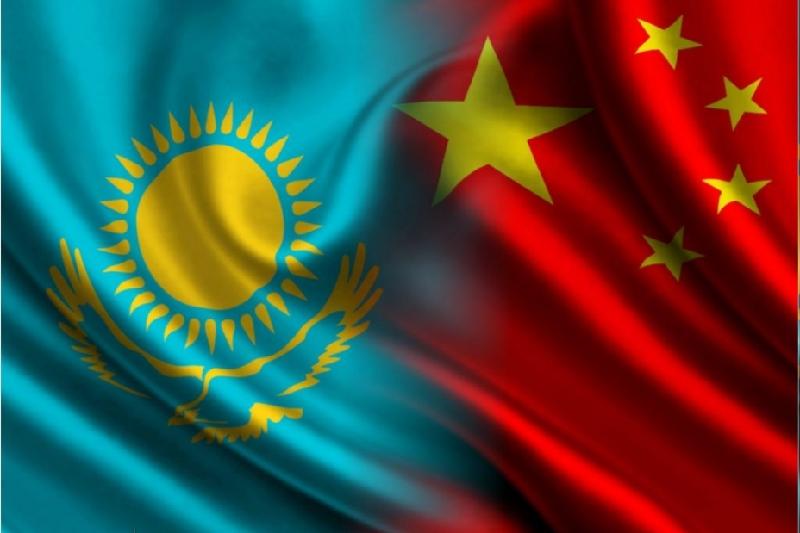China’s incursions into Kazakhstan’s security construct, traditionally seen by Russia as its domain, could set the tone for Beijing’s future relations with Russia and the other Central Asian states.
Background
China’s rise has led to an unprecedented expansion of its sphere of influence. While the Pacific region unequivocally remains Beijing’s top priority, Central Asia’s strategic significance to China must not be underestimated for several reasons. First, China has much to gain from access to Central Asian markets, resources, transit corridors, ports and security partnerships, all of which offer China potential power projection capabilities across a vast transcontinental plain. Second, westward expansion offers China a means to escape the confines of its eastern front – thereby encountering less resistance from the US and its allies in East Asia.
Comment
Since 1991, Chinese foreign direct investment (FDI) into Central Asia has increased more than 100-fold to around US$14.7 billion ($19 billion) annually as of 2018. According to some reports, China has eclipsed Russia as the region’s main external economic partner. Russia can still convincingly claim to be pre-eminent in Central Asia’s military, political, security and cultural sectors, however. This “division of labour” within the region leaves Russia in a dominant role to focus on political and security issues while China maintains a secondary role, focusing on economic ones. Thus far, Beijing’s official acceptance as a secondary power in Central Asia has mitigated geopolitical concerns in the Kremlin.
Recent security co-operation between China and the Central Asian states, however, as seen in the establishment of a military base in Tajikistan and growing arm sales to Turkmenistan and Uzbekistan, is evidence of China increasingly asserting itself in Central Asia’s security sphere. That likely causes some concern within Moscow but remains understated, perhaps due to US-Russia tensions that have led Moscow to a tighter embrace of Beijing, albeit without being tied too closely to Beijing’s objectives. Nevertheless, the shift in the balance of dominance along Russians “near abroad” will likely vex the Sino-Russian relationship in the future, raising the question: will Russia move to balance China’s growing regional influence? If so, how will local elites respond?
To answer these questions, Kazakhstan’s experience affords insights into the challenges and opportunities that an increasingly influential China offers, which is likely to set the standard for its relationships with other Central Asian states.
Kazakhstan has long been recognised as the linchpin in China’s growing ambitions along its western hinterlands (a strategy dubbed “march west”). China’s interests in Kazakhstan essentially converge between perceived security concerns on the one hand and capitalising on economic opportunities on the other. This pertains to cross-border military co-operation to counter the so-called “three evil forces” of religious extremism, ethnic separatism and international terrorism (specifically in Xinjiang); the preservation of political legitimacy within Central Asian states; and the growing importance of Beijing’s energy supply and transport diversification needs. It is therefore no coincidence that China places special emphasis on its bilateral relationship with Kazakhstan.
In turn, Kazakhstan has been the recipient of significant Chinese FDI – to the tune of US$27.6 billion ($35.8 billion) in the country’s oil, mining, transportation, and agricultural sectors – signalling increasing bilateral trade and co-operation. As the Kazakh Government seeks to: (1) diversify its economy away from its over dependence on the extractive sector and; (2) to enhance connectedness to international markets as the world’s largest landlocked country, Kazakhstan is well positioned to be among the larger beneficiaries of China’s Belt and Road Initiative (BRI).
That said, China’s growing presence in Kazakhstan is not without issue. As Sebastien Peyrouse puts it, there is a gap across socio-economic divides between perceptions of what China-Kazakh co-operation entails for the country and its people. This is compounded by a lack of transparency in China-Kazakh interactions and Beijing’s ongoing persecution of ethnic minorities in the Xinjiang region, including ethnic Kazakhs. In an effort to reconcile the dissonance between co-operation with Beijing that serves elite interests and persistent Sinophobia among its other social strata, Kazakhstan simultaneously restricts Chinese ownership of land, has enacted an anti-Chinese visa regime and, in 2019, leaked information about the arrest of a senior government advisor on charges of spying for China in efforts to push back against Chinese influence.
We see similar behaviour with regard to Kazakhstan’s former colonial ruler Russia. Kazakhstan shares a 7,644-kilometre border with Russia, has a large ethnic Russian population and has historically embraced Moscow as its closest ally across all domains. Yet, Kazakhstan continues with its efforts to safeguard its independence from Russian dominance, as evidenced by its position on various issues within the Eurasian Economic Union, the United Nationsand NATO, along with Tokayev’s support for a Latinised alphabet.
Kazakhstan ostensibly remains determined not to submit to the influence of either its powerful neighbours and clearly seeks to benefit from ties to both. It simultaneously seeks to attract FDI from states such as the United States and Europe. This has afforded Nur-Sultan a degree of bargaining power. Looking forward, as the potential for Sino-Russian geopolitical competition rises, how Kazakhstan manages the influence of external powers in the country while protecting its sovereignty could condition how other Central Asian states navigate their foreign policy in negotiating more successfully with both an assertive Russia and an influential China.
“Future Directions International “
Daniela Žuvela
10.02.21
